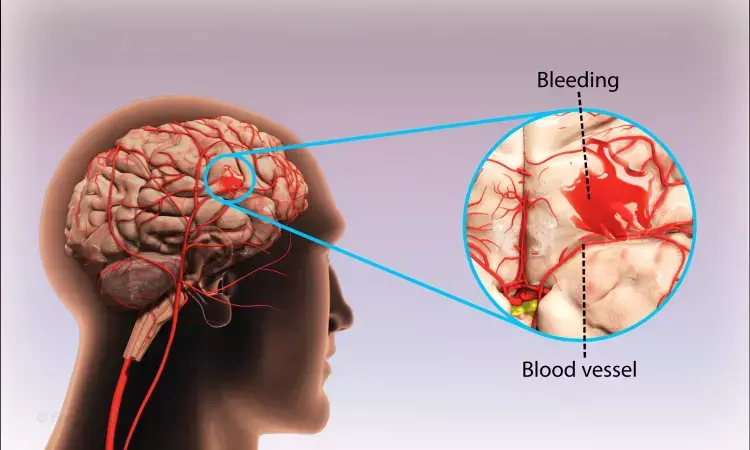- Home
- Medical news & Guidelines
- Anesthesiology
- Cardiology and CTVS
- Critical Care
- Dentistry
- Dermatology
- Diabetes and Endocrinology
- ENT
- Gastroenterology
- Medicine
- Nephrology
- Neurology
- Obstretics-Gynaecology
- Oncology
- Ophthalmology
- Orthopaedics
- Pediatrics-Neonatology
- Psychiatry
- Pulmonology
- Radiology
- Surgery
- Urology
- Laboratory Medicine
- Diet
- Nursing
- Paramedical
- Physiotherapy
- Health news
- Fact Check
- Bone Health Fact Check
- Brain Health Fact Check
- Cancer Related Fact Check
- Child Care Fact Check
- Dental and oral health fact check
- Diabetes and metabolic health fact check
- Diet and Nutrition Fact Check
- Eye and ENT Care Fact Check
- Fitness fact check
- Gut health fact check
- Heart health fact check
- Kidney health fact check
- Medical education fact check
- Men's health fact check
- Respiratory fact check
- Skin and hair care fact check
- Vaccine and Immunization fact check
- Women's health fact check
- AYUSH
- State News
- Andaman and Nicobar Islands
- Andhra Pradesh
- Arunachal Pradesh
- Assam
- Bihar
- Chandigarh
- Chattisgarh
- Dadra and Nagar Haveli
- Daman and Diu
- Delhi
- Goa
- Gujarat
- Haryana
- Himachal Pradesh
- Jammu & Kashmir
- Jharkhand
- Karnataka
- Kerala
- Ladakh
- Lakshadweep
- Madhya Pradesh
- Maharashtra
- Manipur
- Meghalaya
- Mizoram
- Nagaland
- Odisha
- Puducherry
- Punjab
- Rajasthan
- Sikkim
- Tamil Nadu
- Telangana
- Tripura
- Uttar Pradesh
- Uttrakhand
- West Bengal
- Medical Education
- Industry
Magnesium exerts hemostatic effects in intracerebral haemorrhage by reduced hematoma expansion: FAST-MAG analysis

USA: The hemostatic effects of magnesium (Mg) in intracerebral haemorrhage are supported by reduced hematoma expansion in participants of the FAST-MAG trial who achieved higher serum magnesium levels with magnesium treatment, according to an analysis published in the journal Stroke.
Observational studies have shown that magnesium may possess hemostatic effects. FAST-MAG was a pragmatic clinical trial of magnesium sulfate administered prehospital for acute clinical stroke syndromes. It included patients with intracerebral haemorrhage.
Exploratory secondary analysis by the treatment group revealed no reduction in hematoma expansion (HE) linked with magnesium treatment in intracerebral haemorrhage but did not consider serum Mg levels achieved. Eric M. Liotta, Northwestern University, Chicago, IL, and colleagues analyzed FAST-MAG data on intracerebral haemorrhage for associations between serum magnesium level, hematoma expansion, and early neurological deterioration, accounting for groupwise biases.
Hematoma expansion was defined as ≥3 mL increase in the hematoma volume within 24 hours and early neurological deterioration as decline of ≥1-point Glasgow Coma Scale from arrival to hospital ay 4. The biased availability of neuroimaging data was confirmed by comparing treatment and placebo groups. Therefore, HE and neurological deterioration were analyzed and stratified by treatment and placebo groups using adjusted logistic regression and univariate tests.
The researchers reported the following findings:
· Spontaneous intracerebral haemorrhage was present in 381 patients.
· Placebo patients had fewer serial neuroimaging studies available (65.4% versus 75.1%).
· Necessary data were available in 104 magnesium- and 85 placebo-treated patients (age, 64.9 years; 67.7% male).
· In the magnesium group, higher magnesium level was associated with less HE (adjusted odds ratio, 0.64 per mg/dL) and less neurological deterioration (adjusted odds ratio, 0.54 per mg/dL).
· In the placebo group, magnesium level was not associated with either HE or neurological deterioration.
"Magnesium may exhibit a hemostatic effect that was only observable in the FAST-MAG magnesium treatment group," the researchers wrote. "Equipoise should be maintained, and there is a need for specific trials."
Reference:
Liotta EM, Maas MB, Prabhakaran S, Shkirkova K, Sanossian N, Liebeskind DS, Sharma L, Stratton S, Conwit R, Saver JL; FAST-MAG Investigators and Coordinators. Magnesium and Hematoma Expansion in Intracerebral Hemorrhage: A FAST-MAG Randomized Trial Analysis. Stroke. 2023 Dec 21. doi: 10.1161/STROKEAHA.123.043555. Epub ahead of print. PMID: 38126183.
Dr Kamal Kant Kohli-MBBS, DTCD- a chest specialist with more than 30 years of practice and a flair for writing clinical articles, Dr Kamal Kant Kohli joined Medical Dialogues as a Chief Editor of Medical News. Besides writing articles, as an editor, he proofreads and verifies all the medical content published on Medical Dialogues including those coming from journals, studies,medical conferences,guidelines etc. Email: drkohli@medicaldialogues.in. Contact no. 011-43720751


